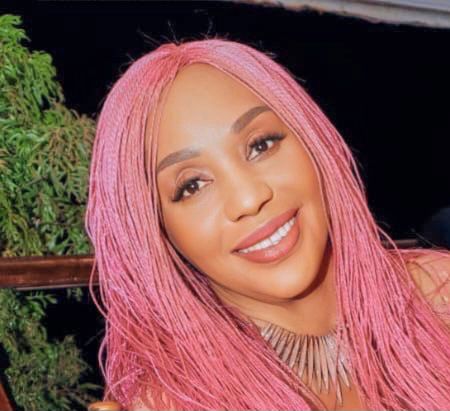Zainab Tunkara Clarkson

Summary: Zainab Tunkara Clarkson is a transformative figure in Sierra Leone, and she continues to champion the rights of the vulnerable and to challenge systemic injustice. Clarkson highlights the significance of building and maintaining trust between citizens of Sierra Leone and advocates in ways that can improve public engagement for good governance. She is a strong critic of regimes in Sierra Leone that have not worked in the interest of Sierra Leoneans so she continually faces social media mudslinging and other attacks
Profile: Zainab Tunkara Clarkson is an activist in Sierra Leone who has worked at senior international development management levels for over a decade. Her experience includes research, organisational development, and communications. She is also a gender advocate with a key interest in the rights of all humans, especially marginalized groups—in particular the disabled—to live freely and to be protected.
Clarkson has fought for women’s and girls’ rights since she was 14 years old. It was then that she resisted an arranged marriage to a 35-year-old man. Her actions met stiff resistance from her community; her older sisters had similar experiences. While growing up, Clarkson had a strong desire to pursue an education and to be able to contribute to society. As she recalls, “I wanted to be the first Madingo girl in our family to go to university. I wanted to be the first to do something that will impact my community and also change the course of young girls.”
In 2021, after years of work, Clarkson established Wheels for Humanity Sierra Leone, an organisation that helps to improve the lives of disabled people in Sierra Leone. For Clarkson, the physically challenged form an integral part of society, and, unlike the UK and the greater part of Europe, Sierra Leone struggles with providing basic support such as wheelchairs to these people.
Sierra Leone has made notable progress in promoting disability issues. It brought the international Convention on the Rights of Persons with Disabilities (UNCRPD) into its own domestic Disability Act in 2011 and established the National Commission for Persons with Disability in 2012 to ensure that the Disability Act was put into practice. But the Disability Act has been criticized for not being implemented well. For this and other reasons, Clarkson remains focused in providing services to the physically challenged.
“When I move around seeing many young boys and girls without wheelchairs,” she says, “I am shaken, and it gives me more courage to strengthen Wheels for Humanity to be able to provide wheelchairs and support for the disability groups within Sierra Leone.”
Apart from her efforts to help the disabled, Clarkson works tirelessly as an advocate for women’s and young people’s economic empowerment; she is currently the Women’s Entrepreneurship Day Organisation Ambassador for Sierra Leone. As might be expected in an economically challenged society such as Sierra Leone, her efforts have been met with harassment and threats. She has a been a subject of abuse on social media by those who feel threatened by her line of work or by those with opposing political alliances. Leading up to the 2023 elections, Clarkson called out the Sierra Leone government’s inability to establish trust with its citizens, which she says has led to protests and loss of faith in the government. Clarkson emphasizes that trust is a strong element in a democracy: It sustains and strengthens the legitimacy of democratic institutions and also serves as the bedrock for the success of public policies. As a result of her stance, she was the subject of cartoons and videos made by unknown groups of people using vile language against her and her family. She was attacked and blamed by these people for being part of a “cabal” that they believe stole the elections.
“They see you as a threat,” says Clarkson, “and further perceive you as an enemy of the state because you have worked with some set of people. You will in turn face barriers and challenges of unemployment or not being able to freely operate when they assume power. It’s frustrating and challenging, but perseverance and knowing that girls and women can benefit from my efforts is key to my activism.”
Despite the attacks, Clarkson has had many successes, including ameliorating the plight of the disabled community in Sierra Leone. In addition, she and colleagues have worked with the Sierra Leone Parliament to help persuade the government to pass into law the 2023 Gender and Women’s Empowerment Act, which provides a significant increase in women's political participation.
Clarkson’s latest goal is to showcase women’s equal representation in politics as a way of breaking barriers and patriarchy and also to give women the space to contribute to national development. This, she says, will challenge “political dissimilarities and injustices that women suffer due to existing traditional and societal bottlenecks.”
